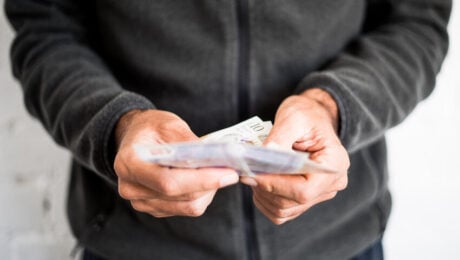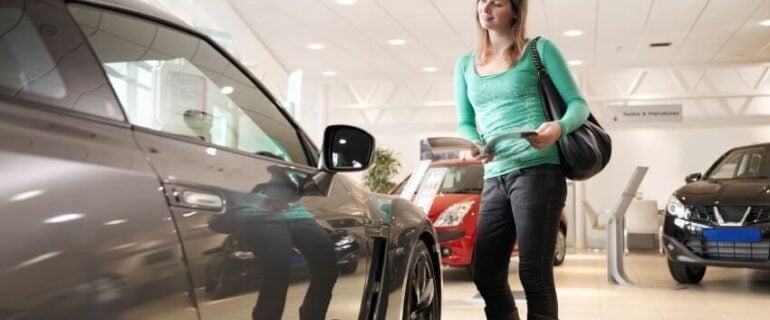If you want to own a car but don’t have the cash to buy one outright, then conditional sale car finance can help you to pay for it.
It is a straightforward form of car finance that can make the cost of a new car more affordable.
What is conditional sale car finance?
Conditional sale is essentially a loan that is secured against your vehicle.
The finance provider will pay for the car and legally own the car for the length of the finance term. You will make repayments to the provider, and once you have made your final payment, ownership of the vehicle will then transfer to you.
What is the difference between conditional sale and HP?
Conditional sale and hire purchase are very similar and work in virtually the same way, with one key difference.
At the end of a hire purchase contract, you need to pay a small “option to purchase” fee to become the legal owner of the car, whereas with conditional sale, you automatically become the owner after you make your last payment.
How does conditional sale work?
When you apply for conditional sale, you will need to pass the provider’s credit and affordability checks as you would on any other loan or finance application.
You will also need to find the money for a deposit. Although you may find some no-deposit deals, bear in mind that the less you put down as a deposit, the more you will need to borrow and the more expensive the finance will be overall.
The conditional sale agreement would pay for the rest of the car and you would repay this amount, as well as the interest charged by the lender, in monthly instalments.
These payments will stay fixed for the whole term.
You are the registered keeper of the car while you make the repayments, which means you are responsible for tax, insurance, servicing and other vehicle running costs.
When you reach the end of your contract and have made all your payments, you will automatically become the owner of the car with nothing more to pay.
If, for some reason, you want to end a conditional sale agreement early and return your car, you have the right to do so through “voluntary termination”. This allows you to return the car without paying any extra charges, but only if you have repaid more than 50% of your finance agreement.Ending the contract in this way won’t harm your credit rating but it could show up on your credit file and some lenders may look at this negatively if this is something that is done frequently.
Read more about how and when you can cancel your car finance early.
Conditional sale example
Cost of car: £16,000
Deposit: £2,000
Balance left to pay: £14,000
APR: 6.2%
Length of contract: 4 years/48 months
Monthly repayments: £328.99
Total amount payable (excluding deposit): £15,791.34
Cost of loan: £1,791.34
Advantages and disadvantages of conditional sale
Advantages of conditional sale
- Can help if you don’t have enough money to buy a car outright.
- Has fixed monthly repayments.
- You automatically own the car at the end of the term without needing to pay an extra fee or lump sum.
- You have the option of returning the vehicle through ‘voluntary termination’ if you have paid more than half of the finance amount.
- Because conditional sale is secured against the car, it can help people with poorer credit scores access finance.
- No mileage restrictions.
- Available on new and used cars.
Disadvantages of conditional sale
- Less choice of what to do at the end of the contract, compared to personal contract purchase.
- You aren’t the legal owner of the car until you’ve repaid the finance in full.
- You can’t sell or modify the car while you are making repayments, unless you get permission from the lender.
- If you don’t keep up with repayments, the lender could repossess your car.
- Monthly repayments can be higher than other finance options, such as PCP or lease.
- More expensive than buying a car outright because you will pay interest on the loan.
Is conditional sale the right option for me?
If you don’t have enough cash to pay for a car upfront and you plan to own the vehicle for a long period of time, then conditional sale may be a good choice.
Finance deals like PCP and leasing are likely to be more suitable if you would want to upgrade your car every few years.
Alternatives to conditional sale
Conditional sale is not the only way to finance a car. Some other options you may want to consider include:
- Hire purchase
- Personal contract purchase (PCP)
- Leasing, also known as Personal Contract Hire
- Personal loan
Before deciding on a type of car finance, make sure you understand the available options and compare them to find the one that is right for you. You should consider whether you want to own the car for a number of years or regularly upgrade to newer models, how much you can afford to pay each month and what option offers you the most competitive rates.
Source: Getty Images
Dive even deeper

Emergency Loans, Grants and Other Support if You Need Money Urgently
Emergency loans can help when you’re faced with an urgent, unexpected expense. But they are usually expensive, and it’s best to look into alternatives first.

Short Term Loans for Bad Credit: Should I Get One?
You may be able to find short term loans for bad credit, but they can be an expensive form of borrowing. It’s important to think carefully about whether a short term loan is right for you before applying for one.

The Invisible Debt of Borrowing From Friends and Family
Three in five UK adults have asked to borrow money from their friends or family, with more than a third needing it for a bill, a new survey has found. Find out more about this hidden world of borrowing and how it can go wrong.

